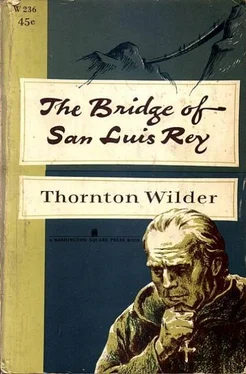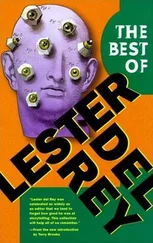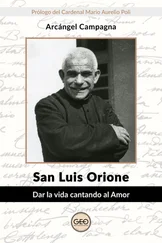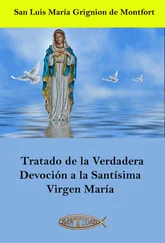As he approached twenty, Uncle Pio came to see quite clearly that his life had three aims. There was first this need of independence, cast into a curious pattern, namely: the desire to be varied, secret and omniscient. He was willing to renounce the dignities of public life, if in secret he might feel that he looked down upon men from a great distance, knowing more about them than they knew themselves; and with a knowledge which occasionally passed into action and rendered him an agent in the affairs of states and persons. In the second place he wanted to be always near beautiful women, of whom he was always in the best and worst sense the worshipper. To be near them was as necessary to him as breathing. His reverence for beauty and charm was there for anyone to see and to laugh at, and the ladies of the theatre and the court and the houses of pleasure loved his connoisseurship. They tormented him and insulted him and asked his advice and were singularly comforted by his absurd devotion. He suffered greatly their rages and their meannesses and their confiding tears; all he asked was to be accepted casually, to be trusted, to be allowed like a friendly and slightly foolish dog to come and go in their rooms and to write their letters for them. He was insatiably curious about their minds and their hearts. He never expected to be loved by them (borrowing for a moment another sense of that word); for that, he carried his money to the obscurer parts of the city; he was always desperately unprepossessing, with his whisp of a moustache and his whisp of a beard and his big ridiculous sad eyes. They constituted his parish; it was from them that he acquired the name of Uncle Pio and it was when they were in trouble that he most revealed himself; when they fell from favour he lent them money, when they were ill he outlasted the flagging devotion of their lovers and the exasperation of their maids; when time or disease robbed them of their beauty, he served them still for their beauty’s memory; and when they died his was the honest grief that saw them as far as possible on their journey.
In the third place he wanted to be near those that loved Spanish literature and its masterpieces, especially in the theatre. He had discovered all that treasure for himself, borrowing or stealing from the libraries of his patrons, feeding himself upon it in secrecy, behind the scenes, as it were, of his mad life. He was contemptuous of the great persons who, for all their education and usage, exhibited no care nor astonishment before the miracles of word order is Calderón and Cervantes. He longed himself to make verses. He never realized that many of the satirical songs he had written for the vaudevilles passed into folk-music and have been borne everywhere along the highroads.
As the result of one of those quarrels that arise so naturally in brothels his life became too complicated and he removed to Peru. Uncle Pio in Peru was even more versatile than Uncle Pio in Europe. Here too he touched upon real estate, circuses, pleasures, insurrections and antiques. A Chinese junk had been blown from Canton to America; he dragged up the beach the bales of deep-red porcelain and sold the bowls to the collectors of virtú. He traced down the sovereign remedies of the Incas and started a smart trade in pills. Within four months he knew practically everyone in Lima. He presently added to this acquaintance the inhabit., ants of scores of seacoast towns, mining camps and settlements in the interior. His pretensions to omniscience became more and more plausible. The Viceroy discovered Uncle Pio and all this richness of reference; he engaged his services in many affairs. In the decay of his judgment Don Andrés had retained one talent, he was a master of the technique of handling confidential servants. He treated Uncle Pio with great tact and some deference; he understood which errands the other should not be asked to undertake and he understood his need for variety and intermission. Uncle Pio in turn was perpetually astonished that a prince should make so little use of his position, for power, or for fantasy, or for sheer delight in the manipulation of other men’s destinies; but the servant loved the master because he could quote from any of Cervantes’ prefaces and because his tongue had a little Castilian salt about it still. Many a morning Uncle Pio entered the Palace through corridors where there was no one to cross but a confessor or a confidential bully and sat with the Viceroy over his morning chocolate.
But for all his activity nothing made Uncle Pio rich. One would have said that he abandoned a venture when it threatened to prosper. Although no one knew it, he owned a house. It was full of dogs that could add and multiply and the top floor was reserved for birds. But even in this kingdom he was lonely, and proud in his loneliness, as though there resided a certain superiority in such a solitude. Finally he stumbled upon an adventure that came like some strange gift from the skies and that combined the three great aims of his life: his passion for overseeing the lives of others, his worship of beautiful women, and his admiration for the treasures of Spanish literature. He discovered Camila Perichole. Her real name was Micaela Villegas. She was singing in cafés at the age of twelve and Uncle Pio had always been the very soul of cafés. Now as he sat among the guitarists and watched this awkward girl singing ballads, imitating every inflection of the more experienced singers who had preceded her, the determination entered his mind to play Pygmalion. He bought her. Instead of sleeping locked up in the wine bin, she inherited a cot in his house. He wrote songs for her, he taught her how to listen to the quality of her tone, and bought her a new dress. At first all she noticed was that it was wonderful not to be whipped, to be offered hot soups, and to be taught something. But it was Uncle Pio who was really dazzled. His rash experiment flourished beyond all prophecy. The little twelve-year-old, silent and always a little sullen, devoured work. He set her endless exercises in acting and mimicry; he set her problems in conveying the atmosphere of a song; he took her to the theatres and made her notice all the details of a performance. But it was from Camila as a woman that he was to receive his greatest shock. The long arms and legs were finally harmonized into a body of perfect grace. The almost grotesque and hungry face became beautiful. Her whole nature became gentle and mysterious and oddly wise; and it all turned to him. She could find no fault in him and she was sturdily loyal. They loved one another deeply but without passion. He respected the slight nervous shadow that crossed her face when he came too near her. But there arose out of this denial itself the perfume of a tenderness, that ghost of passion which, in the most unexpected relationship, can make even a whole lifetime devoted to irksome duty pass like a gracious dream.
They travelled a great deal, seeking new taverns, for the highest attribute of a café singer will always be her novelty. They went to Mexico, their odd clothes wrapped up in the self-same shawl. They slept on beaches, they were whipped at Panama and shipwrecked on some tiny Pacific islands plastered with the droppings of birds. They tramped through jungles delicately picking their way among snakes and beetles. They sold themselves out as harvesters in a hard season. Nothing in the world was very surprising to them.
Then began an even harder course of training for the girl, a regimen that resembled more the preparation for an acrobat. The instruction was a little complicated by the fact that her rise to favor was very rapid; and there was some danger that the applause she received would make her content with her work too soon. Uncle Pio never exactly beat her, but he resorted to a sarcasm that had terrors of its own.
At the close of a performance Camila would return to her dressing-room to find Uncle Pio whistling nonchalantly in one corner. She would divine his attitude at once and cry angrily:
Читать дальше












